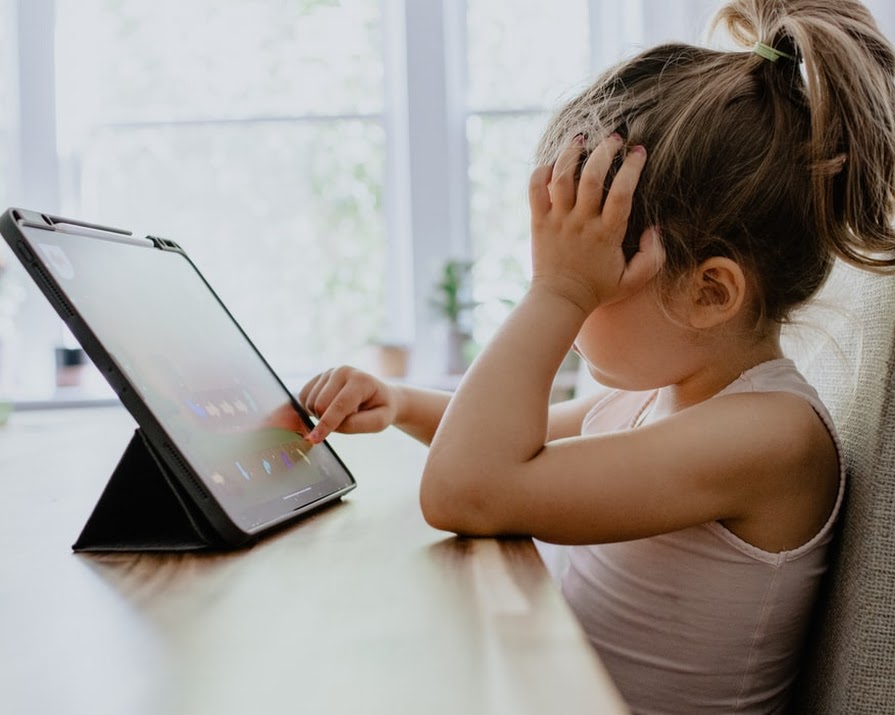
New study from Trinity College links increased screen time to rising mental health issues in children
By Erin Lindsay
22nd Sep 2020
22nd Sep 2020
The study was completed across two cohorts of nine-year-olds.
Children who spend significant amounts of time on screens are more likely to suffer from mental health issues, according to a new study from Trinity College Dublin.
Sociologists Melissa Bohnert and Dr Pablo Gracia published their findings in Child Indicators Research journal, in which they examined two sets of of nine-year-old children, growing up in 2008 and 2018, and formed a comparative analysis between the two.
The paper, Emerging Digital Generations?, is the first examination of how digital technology affects socio-emotional wellbeing and how these impacts have changed across the two generations.
The study used data from the ongoing Growing Up in Ireland research initiative; a large-scale multi-cohort survey of children across Ireland.
Key findings included how the type and duration of screen time affects children. The study found that while some digital activities, such as gaming, socialising and educational engagement were found to have “small and insignificant” affects on young children, other activities such as watching Netflix or YouTube were more likely to prove harmful.
Spending more than three hours per day watching a screen, either on TV or on a digital device, was linked with “important declines” in child mental health, including hyperactivity and disruptive behaviours.
The study also examined changing usage and habits associated with digital media and screens. 73 per cent of the nine-year-olds interviewed in 2008 reported spending over an hour per day watching television, while just 48 per cent of 2018 children reported the same. In contrast, watching YouTube or streaming music or movies jumped from 28 per cent in 2008 to 89 per cent in 2018.
Mobile phone ownership similarly increased between the two cohorts, from 61 per cent in 2008 to 78 per cent in 2018.
The study also researched how digital habits differ across varying socio-economic status (SES) and gender. The research found that low-SES children were found to spend more time on screens-based activities, and boys were found to spend more time than girls.
The study is part of an EU-funded project, Digymatex, examining the impact of children’s digital engagement across different demographic and socio-economic groups.
Read more: ‘This much I have learned from parenting books — bribery doesn’t work’
Read more: A teacher’s strike could be on the way, as ASTI expresses Covid-19 safety concerns
Read more: Baby on board? 100 essential tips for first-time parents (from mums who’ve been there)























